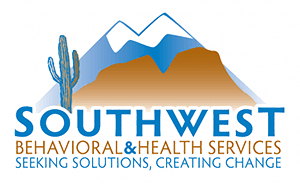7-9 Grade
Grades 7-9
|
For parents, this is a pivotal time in helping kids make positive choices when faced with drugs and alcohol. The average age kids try drugs for the first time in Arizona is 13. “If your child is 13,” says Amelia Arria, senior scientist with Treatment Research Institute, “you should assume that he or she has been offered drugs or alcohol.” But you can help your teen stay healthy and drug-free — and beat the negative statistics. Kids who learn about the risks of drugs from their parents are up to 50 percent less likely to use. So, most importantly, stay involved. Young teens may say they don't need your guidance, but they're much more open to it than they'll ever let on. Make sure you talk to them about their choices of friends — drug use in teens starts as a social behavior. Here are 5 tips to help you help your teen live a healthy, drug-free life:
Substances in your seventh to ninth grader's world can include: Tobacco, Alcohol, prescription drugs such as Ritalin or Adderall, painkillers, sleeping pills, Inhalants, and illicit drugs such as Marijuana, Ecstasy, Cocaine/Crack, Heroin, Mushrooms Scenario You find out that kids are selling prescription drugs at your child’s school. Your child hasn’t mentioned it and you want to get the conversation about it started. What to Say Hey, you probably know that parents talk to each other and find things out about what’s going on at school… I heard there are kids selling pills—prescriptions that either they are taking or someone in their family takes. Have you heard about kids doing this? |
Your teen is starting high school—and you want to remind him that he doesn’t have to
give in to peer pressure to drink or use drugs.
What to Say
You must be so excited about starting high school… it’s going to be a ton of fun, and we want you to have a great time. But we also know there’s going to be some pressure to start drinking, smoking pot or taking other drugs. A lot of people feel like this is just what high school kids do. But not all high school kids drink! Many don’t, which means it won’t make you weird to choose not to drink, either. You can still have a lot of fun if you don’t drink.
You’ll have a lot of decisions to make about what you want to do in high school and you might even make some mistakes. Just know that you can talk to us about anything—even if you DO make a mistake. We won’t freak out. We want you to count on us to help you make smart decisions and stay safe, okay?
Scenario
Every time you ask your teen how his day was, you get a mumbled “Whatever, it was
okay” in return.
What to Say
Skip asking general questions like “How’s school?” every day. Instead, ask more specific questions on topics that interest both you and your teen (“Tell me about the pep rally yesterday.” “Are there a lot of cliques in your school?” “Fill me in on your Chemistry lab test.”) You can also use humor and even some gentle sarcasm to get the conversation flowing. Try, “Oh, what a joy it is to live with a brooding teenager!” to make your child laugh and start opening up a bit.


